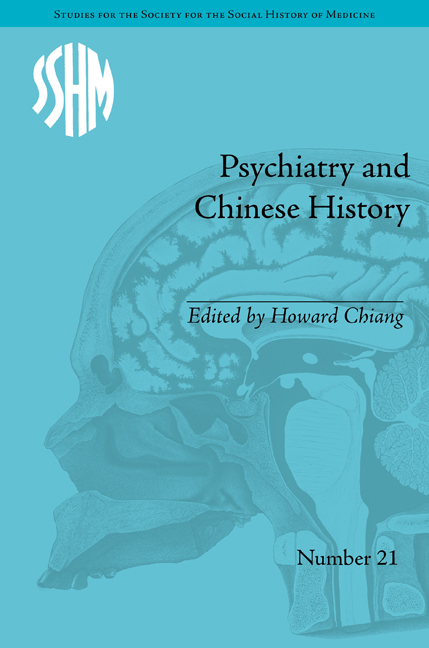Book contents
Afterword: Reframing Psychiatry in China
Summary
Psychiatry in contemporary China has multiple influences or genealogies reflecting distinct institutional frameworks of knowledge, practice and care. Whether from imperial medical doctors, Western missionary physicians, mental hygiene programs, international classification categories, or Big Pharma drugs, the formations of contemporary Chinese psychiatry are deeply shaped by foundational practices of psychiatry from earlier periods. Scholars of medicine and madness have long considered psychiatry as a key site to examine cultural beliefs and societal values. This afterword addresses the places, practices and people that animated Chinese psychiatry, as well as specific themes and tensions that emerge in this volume. Through imperial case histories, mental illness categories and institutional histories, the authors focus on notions of selfhood, professional knowledge and confinement that reflect particular notions of governance and care. Rather than argue that contemporary psychiatry in China is merely a continuation of earlier formations, the authors collectively unpack such spaces of containment to reframe categories of emotion and ongoing family state relations.
The volume advances in chronological formation beginning with Imperial China and early formations of wellbeing. In her examination of dreams and nightmares of late Ming China, Vance shows how dreams were intimately linked to emotions and the body revealing potential energetic blockages that could lead to illness or disease. Unlike concepts of Cartesian dualism which contended that mind and body were quite separate spheres, medical treatises of the era extensively addressed proscriptions for proper sleep habits, recognizing that bodily practices could impact mental wellbeing.
- Type
- Chapter
- Information
- Psychiatry and Chinese History , pp. 205 - 212Publisher: Pickering & ChattoFirst published in: 2014

